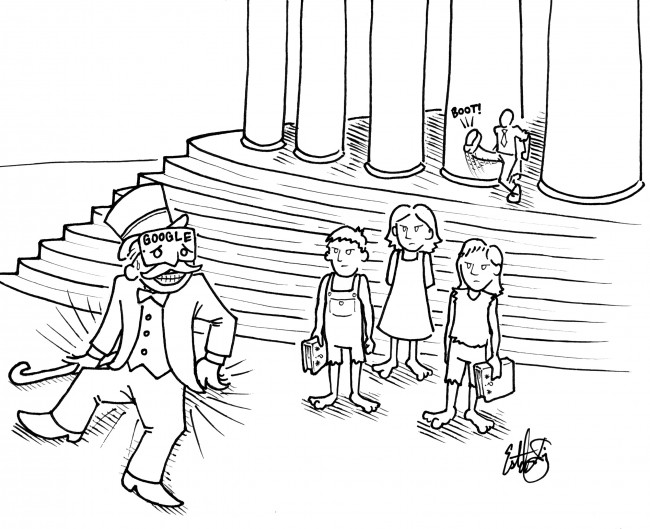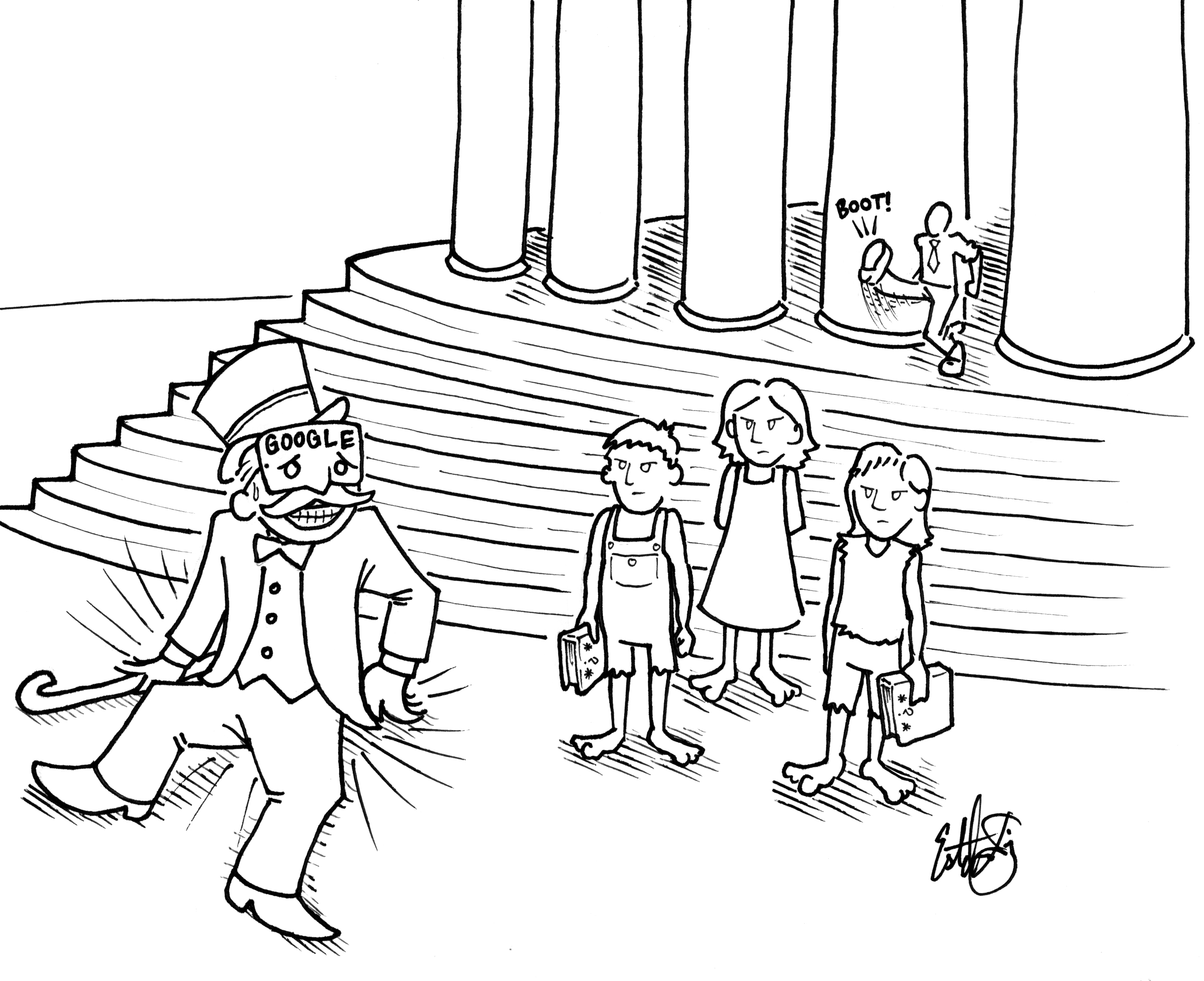
Google is typically synonymous with progress, efficiency and technological advancement. Google Books, however, the technology giant’s endeavor to allow a new way of reading and utilizing books, has been abruptly halted with a recent decision by a federal judge.
The goal of Google Books is to scan and make every book ever published, especially “orphan books” – those books that remain under copyright, yet the possessor of the copyright cannot be located — available to the online community at no cost to start.
According to the New York Times, these can range from personal autobiographies to rare books in university libraries.
Judge Denny Chin for the 2nd U.S. Circuit Court of Appeals presided over a case pitting Google against the authors and representatives of the authors of digitized books who do not want their works controlled by Google.
Had the court not made the decision to halt the advancement of Google Books, the government would have essentially been supporting and endorsing one company — Google — to the point of a monopoly on digital libraries.
The primary problem is the two types of exploitation that are sure to arise from this issue — the exploitation of orphan books and consumers.
According to the Times, nearly half of all books are orphan books. With such a large population of orphan books and Google’s former ability to digitize the books without concern for copyright, a monopoly would have existed had the courts not intervened.
Google Books would — according to the endeavor’s mission — eventually be the only way to access half of the books in the world, which would ensure a monopolization of this new venture into digital libraries before the market was even fully created.
There is still much to be decided concerning the limitations and restrictions to digitally publishing orphan books. Why should the national standard for orphaned books be decided in a private court case instead of being guided through the legislative branch?
In addition to the exploitation of the work, there is a potential for consumers to be exploited in the future. Google Books would already have the monopoly over digital works and could potentially begin to charge for the works it once offered free of charge. Google is a business and as such is looking for profitability. Why would the company be a deciding factor in how the federal government treats digitized orphaned books? There is a clear conflict of interest and neglect for the America lawmaking process.
Through the monopoly of digital texts, Google would also increase its chance of gaining a monopoly over other search engines — a monopoly most already believe exists.
No competition would exist to drive the prices down and those who want to utilize Google Books would most likely pay a high price to do so.
If there is no competition within the digital library marketplace, there will exist no check on the distributors’ power over the product and, subsequently, consumers.
Google Books is, in actuality, a wonderful tool to maintain the permanence of books. Taking into consideration the way that society is moving, it stands to reason that eventually digital copies of books may be all that exist. Therefore, the use of Google Books — or a variation thereof — will probably be necessary.
There are not enough valid reasons, however, to maintain Google Books in its current state. America’s next steps should be carefully considered in order to best serve the public and our legislature should take action so that digital progress can continue.






